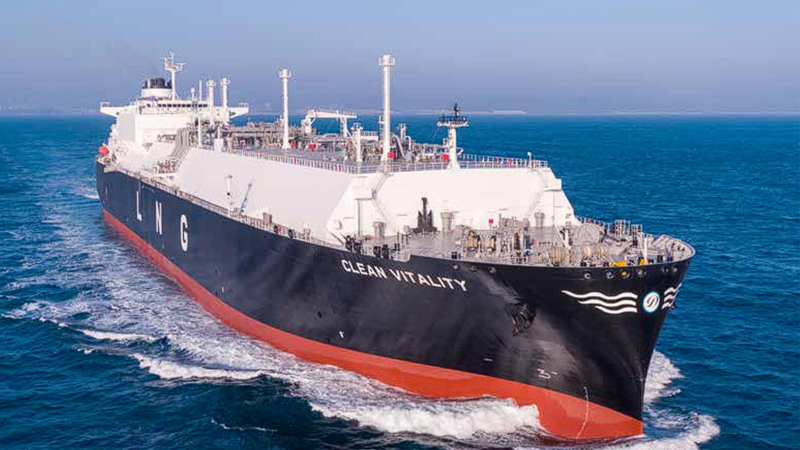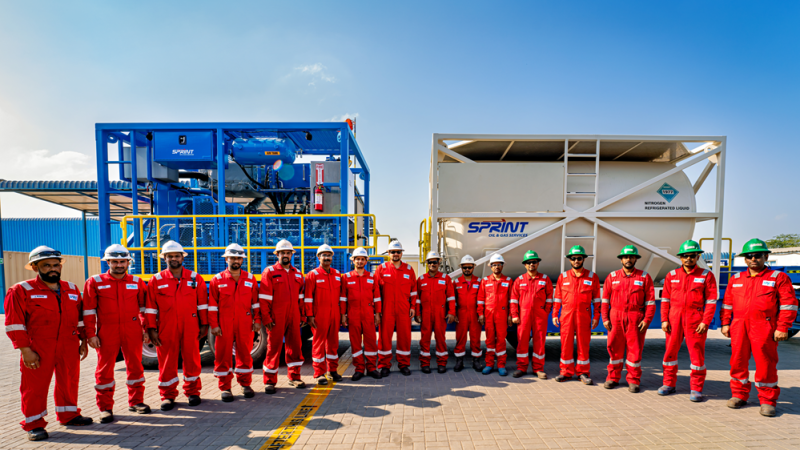The oil and gas industry has long been the backbone of global energy, driving industrialisation and modern economies for over a century. As the world shifts towards a more sustainable future, decarbonisation has emerged as a reasonable pathway for the sector. There is no longer a question if companies should decarbonise their operations, but there is a necessity to facilitate this process, taking into account climate change concerns, new regulatory requirements and evolving market demands.
“Decarbonisation is a common target. It is important to share knowledge and create collaborations, because we have to work in a similar direction”, – Filippo Travaglia, Pipeline Engineering Department Manager, Eni S.p.A.
Decarbonisation is a challenge for all businesses involved in the energy sector, so there is an increasing need for sharing knowledge to find collaborative solutions. The Oil and Gas Decarbonisation Congress: DECARBON 2025 is a must-attend event for the industry professionals seeking new partnerships and driving decarbonisation forward. The Congress is taking place on 10-11 February in Berlin to cover topics of net-zero emissions, CCUS projects, predictive maintenance, H2 rainbow and other innovative technologies for shaping the future of decarbonisation in the upstream, midstream and downstream operations.
Why to decarbonise?
- Regulatory Pressures. Governments around the world are becoming more and more concerned with climate changes. For this reason, stricter environmental regulations, carbon pricing mechanisms and emission reduction targets are implemented to protect the environment. Failure to follow these new rules could lead to serious consequences for the companies: significant financial penalties, restrictions on operations or even the loss of market access in key regions.
- Investor and Stakeholder Expectations. The rise of environmental, social and governance (ESG) criteria has transformed the landscape of corporate investment. Major institutional investors and asset managers are demanding that companies outline clear plans for decarbonisation, as they seek to mitigate the risks associated with climate change and unsustainable business practices.
- Changing Consumer Preferences. Consumers are becoming more environmentally conscious and are demanding greener energy solutions. This shift in preferences is driving a significant transformation in energy consumption patterns, with renewable energy sources such as hydrogen gaining momentum. Oil and gas companies that fail to adapt risk losing market share to cleaner energy alternatives.
- Technological Advancements. Innovations in energy technologies are providing oil and gas companies with the tools to decarbonise more effectively. Carbon capture, utilisation and storage (CCUS), integration of renewable energy sources into existing infrastructure, advancements in methane detection and reduction technologies and other innovations allow companies not only to reduce their environmental impact but also to enhance efficiency and lower operational costs in the long run.
- Sustainable Development. By reducing emissions and diversifying their portfolios with cleaner energy alternatives, oil and gas companies can future-proof their business models. Climate change poses physical, regulatory and reputational risks, and decarbonisation offers a way to mitigate these risks while ensuring consistent business viability.
“Decarbonisation is not a matter if we should do this, we must do this. Both as individuals and professionals, we need to set our mind on how to develop technologies to reduce footprint. This comes from very niched technologies: how to capture carbon and store it, how to transport it and what you need to do next with CO2”, – Marco Hutteman, Senior Sales Executive, Force Technology.
Why now?
The transition to a low-carbon economy is inevitable. Companies that invest early in decarbonisation will likely emerge as leaders in the energy transition, gaining a competitive advantage over those that are slow to adapt. Furthermore, decarbonisation can no longer be viewed solely as an environmental responsibility, it is a strategic imperative. The industry’s financial performance is increasingly tied to its ability to respond to climate challenges, as investors, customers and governments are pivoting toward low-carbon alternatives. The companies that act now will be better positioned to manage the financial risks of the energy transition while also capitalising on emerging opportunities in cleaner energy markets.
“We should use all the technologies that are there today, because what we don’t have is too much time. We need to be fast, and therefore we need to seize all the opportunities available”, – Oliver Altenhoff, Head of Regulatory Affairs, OGE.
Why is DECARBON 2025 a tool for achieving decarbonisation goals?
The DECARBON 2025 brings together oil and gas majors, EPCs, pipeline operators, refineries and petrochemical plants to explore the latest advancements, strategies and solutions in reducing carbon emissions within the entire value chain. The business programme is filled with insightful presentations from top industry players, such as:
- changes in infrastructure management strategies for decarbonisation by Abhay Chand (CEO at Petro IT),
- strategic pipelines as catalysts for decarbonisation by George Satlas (Executive Officer at ICGB AD),
- pathways to decarbonise a refinery by Dr. Alexander Struck (Managing Director at Bayernoil Raffineriegesellschaft mbH)
- and many others.
The Congress provides a valuable opportunity for leaders to share knowledge during the sessions and roundtables, showcase innovations at the focus exhibitions and network during the coffee breaks and the gala dinner.
“We need to get to know each other much better in order to find good solutions and help each other with these small puzzle pieces. So the DECARBON 2025 is an important tool to do this”, – Peter Markussen, CEO of Associated Activities, Energinet.
Decarbonising the oil and gas industry is no longer an option – it is a necessity. Join DECARBON 2025 to reimagine the future of energy!
*Quotations source: DECARBON 2025 interview videos on BGS Group YouTube channel.







